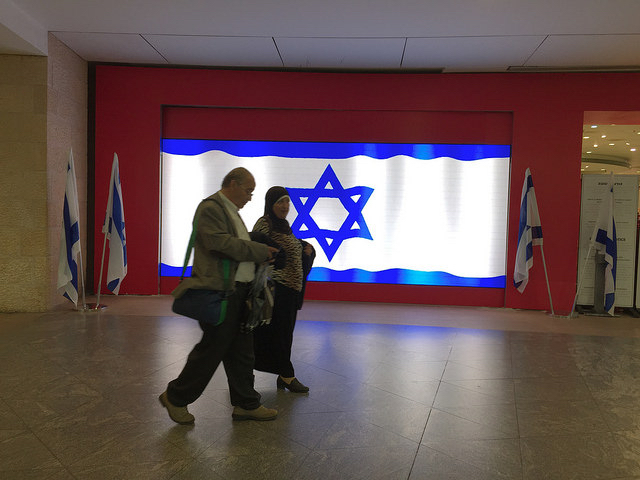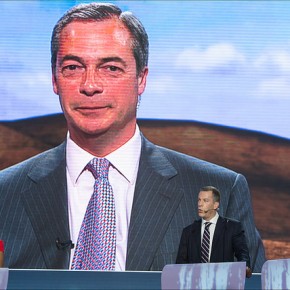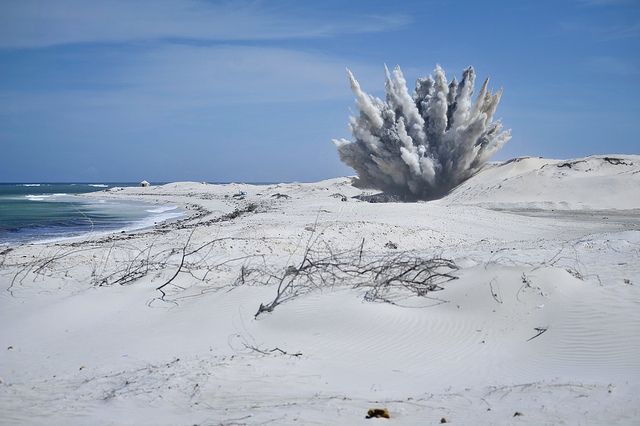I for one regret that the old Pax Romana was broken up by the Arabs; and hold that in the long run there was more life in that Byzantine decline than in that Semitic revival. And I will add what I cannot here develop or defend; that in the long run it is best that the Pax Romana should return; and that the suzerainty of those lands at least will have to be Christian, and neither Moslem nor Jewish.
To defend it is to defend a philosophy; but I do hold that there is in that philosophy, a possibility of comprehension and many-sided sympathy, which is not in the narrow intensity either of the Moslem or the Jew. Christianity is really the right angle of that triangle, and the other two are very acute angles.
But in the meetings that led up to the riots, it is the more Moslem part of the mixed crowds that I chiefly remember; which touches the same truth that the Christians are the more potentially tolerant. But many of the Moslem leaders are as dignified and human as many of the Zionist leaders; the Grand Mufti is a man I cannot imagine as either insulting anybody, or being conceivably the object of insult.
The Moslem Mayor of Jerusalem was another such figure, belonging also I believe to one of the Arab aristocratic houses (the Grand Mufti is a descendant of Mahomet) and I shall not forget his first appearance at the first of the riotous meetings in which I found myself. I will give it as the first of two final impressions with which I will end this chapter, I fear on a note of almost anarchic noise, the unearthly beating and braying of the Eastern gongs and horns of two fierce desert faiths against each other.
I first saw from the balcony of the hotel the crowd of rioters come rolling up the street. In front of them went two fantastic figures turning like teetotums in an endless dance and twirling two crooked and naked scimitars, as the Irish were supposed to twirl shillelaghs. I thought it a delightful way of opening a political meeting; and I wished we could do it at home at the General Election. I wish that instead of the wearisome business of Mr. Bonar Law taking the chair, and Mr. Lloyd George addressing the meeting, Mr. Law and Mr. Lloyd George would only hop and caper in front of a procession, spinning round and round till they were dizzy, and waving and crossing a pair of umbrellas in a thousand invisible patterns. But this political announcement or advertisement, though more intelligent than our own, had, as I could readily believe, another side to it.

I was told that it was often a prelude to ordinary festivals, such as weddings; and no doubt it remains from some ancient ritual dance of a religious character. But I could imagine that it might sometimes seem to a more rational taste to have too religious a character. I could imagine that those dancing men might indeed be dancing dervishes, with their heads going round in a more irrational sense than their bodies. I could imagine that at some moments it might suck the soul into what I have called in metaphor the whirlpool of Asia, or the whirlwind of a world whipped like a top with a raging monotony; the cyclone of eternity. That is not the sort of rhythm nor the sort of religion by which I myself should hope to save the soul; but it is intensely interesting to the mind and even the eye, and I went downstairs and wedged myself into the thick and thronging press.
It surged through the gap by the gate, where men climbed lamp-posts and roared out speeches, and more especially recited national poems in rich resounding voices; a really moving effect, at least for one who could not understand a word that was said. Feeling had already gone as far as knocking Jews’ hats off and other popular sports, but not as yet on any universal and systematic scale; I saw a few of the antiquated Jews with wrinkles and ringlets, peering about here and there; some said as spies or representatives of the Zionists, to take away the Anti-Semitic colour from the meeting. But I think this unlikely; especially as it would have been pretty hard to take it away.
It is more likely, I think, that the archaic Jews were really not unamused and perhaps not unsympathetic spectators; for the Zionist problem is complicated by a real quarrel in the Ghetto about Zionism. The old religious Jews do not welcome the new nationalist Jews; it would sometimes be hardly an exaggeration to say that one party stands for the religion without the nation, and the other for the nation without the religion. Just as the old agricultural Arabs hate the Zionists as the instruments of new Western business grab and sharp practice; so the old peddling and pedantic but intensely pious Jews hate the Zionists as the instruments of new Western atheism of free thought. Only I fear that when the storm breaks, such distinctions are swept away.

The storm was certainly rising. Outside the Jaffa Gate the road runs up steeply and is split in two by the wedge of a high building, looking as narrow as a tower and projecting like the prow of a ship. There is something almost theatrical about its position and stage properties, its one high-curtained window and balcony, with a sort of pole or flagstaff; for the place is official or rather municipal. Round it swelled the crowd, with its songs and poems and passionate rhetoric in a kind of crescendo, and then suddenly the curtain of the window rose like the curtain of the theatre, and we saw on that high balcony the red fez and the tall figure of the Mahometan Mayor of Jerusalem.
I did not understand his Arabic observations; but I know when a man is calming a mob, and the mob did become calmer. It was as if a storm swelled in the night and gradually died away in a grey morning; but there are perpetual mutterings of that storm. My point for the moment is that the exasperations come chiefly from the two extremes of the two great Semitic traditions of monotheism; and certainly not primarily from those poor Eastern Christians of whose fanaticism we have been taught to make fun. From time to time there are gleams of the extremities of Eastern fanaticism which are almost ghastly to Western feeling. They seem to crack the polish of the dignified leaders of the Arab aristocracy and the Zionist school of culture, and reveal a volcanic substance of which only oriental creeds have been made.
One day a wild Jewish proclamation is passed from hand to hand, denouncing disloyal Jews who refuse the teaching Hebrew; telling doctors to let them die and hospitals to let them rot, ringing with the old unmistakable and awful accent that bade men dash their children against the stones. Another day the city would be placarded with posters printed in Damascus, telling the Jews who looked to Palestine for a national home that they should find it a national cemetery. And when these cries clash it is like the clash of those two crooked Eastern swords, which crossed and re-crossed and revolved like blazing wheels, in the vanguard of the marching mob.
I felt the fullest pressure of the problem when I first walked round the whole of the Haram enclosure, the courts of the old Temple, where the high muezzin towers now stand at every corner, and heard the clear voices of the call to prayer. The sky was laden with a storm that became the snowstorm; and it was the time at which the old Jews beat their hands and mourn over what are believed to be the last stones of the Temple. There was a movement in my own mind that was attuned to these things, and impressed by the strait limits and steep sides of that platform of the mountains; for the sense of crisis is not only in the intensity of the ideals, but in the very conditions of the reality, the reality with which this chapter began. And the burden of it is the burden of Palestine; the narrowness of the boundaries and the stratification of the rock.
A voice not of my reason but rather sounding heavily in my heart, seemed to be repeating sentences like pessimistic proverbs. There is no place for the Temple of Solomon but on the ruins of the Mosque of Omar. There is no place for the nation of the Jews but in the country of the Arabs. And these whispers came to me first not as intellectual conclusions upon the conditions of the case, of which I should have much more to say and to hope; but rather as hints of something immediate and menacing and yet mysterious. I felt almost a momentary impulse to flee from the place, like one who has received an omen. For two voices had met in my ears; and within the same narrow space and in the same dark hour, electric and yet eclipsed with cloud, I had heard Islam crying from the turret and Israel wailing at the wall.
Excerpted from The New Jerusalem (1920), by G.K. Chesterton. Published under a Creative Commons license, courtesy of Project Gutenberg. Photographs by Joel Schalit.





